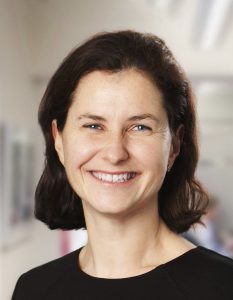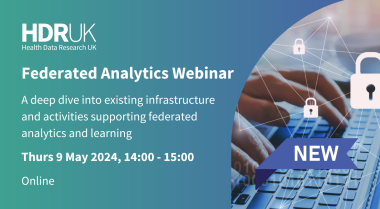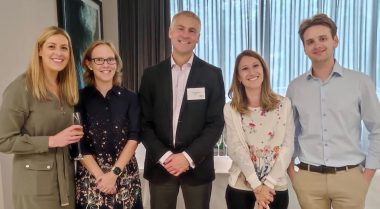 Author: Caroline Cake, Chief Operating Officer, Health Data Research UK
Author: Caroline Cake, Chief Operating Officer, Health Data Research UK
It’s an absolute privilege to be involved in the early stages of shaping Health Data Research UK.
This is a new world to me, and the first month has been an enjoyable experience learning about the great health data research that’s going on around the UK.
On these visits, I have been impressed by:
- the people I have met: every single research director, PhD student, administrative staff member, industry partner, clinician has been committed to a vision of using health data to improve health outcomes and each brings a breadth of skills to making this happen
- the assets that already exist across the UK: my visits (so far) to Aberdeen, Edinburgh, Oxford, Cambridge and London showcase the phenomenal physical spaces that we have within the UK for multi-disciplinary working
- the potential of the science: it’s incredibly exciting to hear how people are using AI to understand asthma, using molecular links to predict cardiovascular disease, using machine learning to inform trauma clinical decision making, and applying algorithms to nation-wide registries of cancer data to improve the quality of care.
Before joining, I knew from my previous experience that the opportunities for health data research in the UK were big, and this first month has certainly shown me that this is true and also that it is within our gift to realise this potential.
HDR UK’s role as the national Institute for Health Data Research is crucial within this, and I will be focusing on shaping this role and how HDR UK is organised to make the greatest difference to health data research in the UK. My thoughts on this are forming around:
Leveraging and making things visible: While there are extraordinary things happening across the UK, these aren’t easily visible to others. In a conversation with one of the HDR UK Fellows, he shared the fascinating science that he’s doing, but he didn’t yet know what other fellows are doing and whether there might be opportunities to collaborate. I’ll work with colleagues to make it easy to learn what others are doing and to collaborate to do even better science.
Understanding and addressing the gaps: Given the assets and ideas that we have in the UK, what will it take to turn these into national and global healthcare solutions? We need to support the SME and start-up communities within the UK, to build expertise to grow global leading businesses, and to put in place the governance and technology solutions to provide safe access to the data. Our recent KQ Labs announcement is a great example of this.
Relentlessly focusing on the needs of the end user: Transformational change will come from health data research. Dr Daniel Chen, a Stanford oncologist and researcher, illustrates the opportunity in his field in last week’s Observer1 “The tidal wave of data is still teaching us fundamental concepts about the interaction of the human immune system and human cancer.” It’s also bringing us important new approaches to the treatment – and possibly the cure – of cancer. “So, this data needs to be disseminated as quickly as possible.”
Rather than looking to replicate existing practices, we need to use the data and data science tools to meet the needs of patients and of researchers. We will engage with and listen to users of data research and the beneficiaries of the improved healthcare to ensure their needs are guiding the work. Using health data relies on public trust, we will earn this trust through rigorous safe processes and through delivering benefits that address the healthcare challenges that affect all of us.
I am looking forward to collaborating with people across the UK in our endeavour to create a UK-wide institute to improve healthcare outcomes through health data research.
Photo: Aberdeen Railway Station, Stanley Howe




